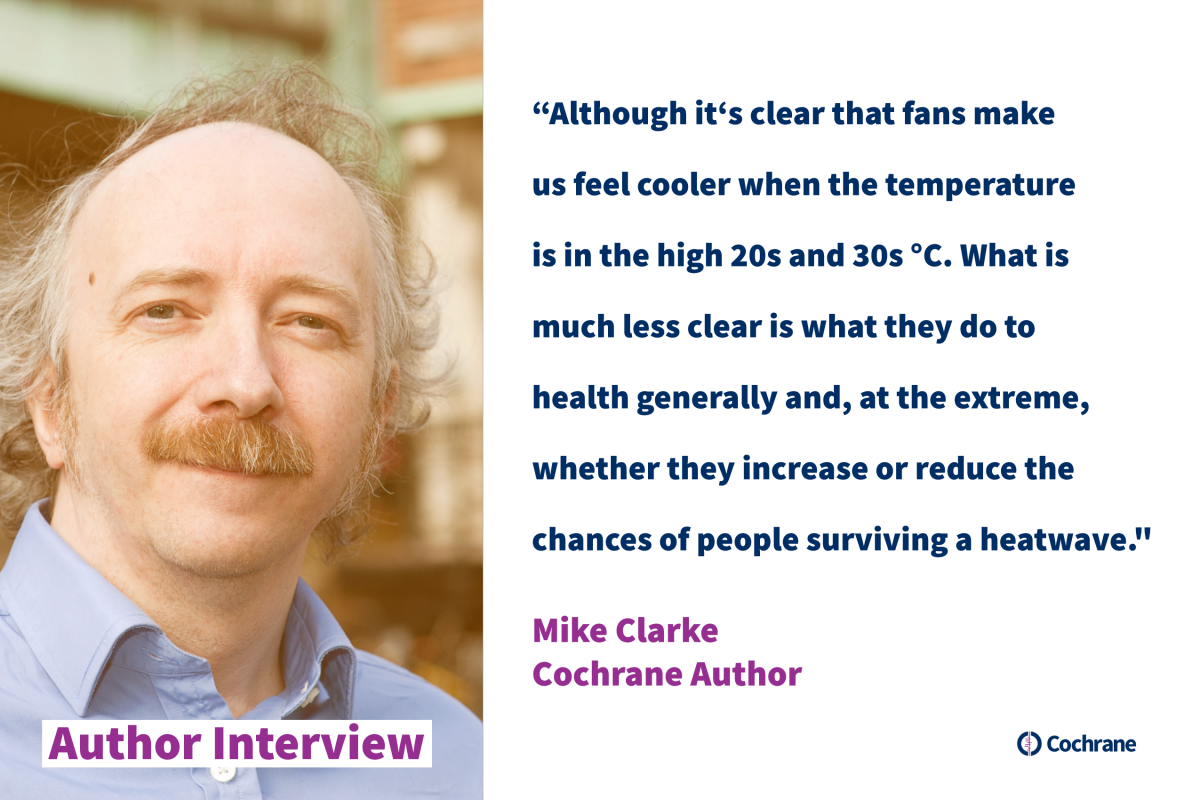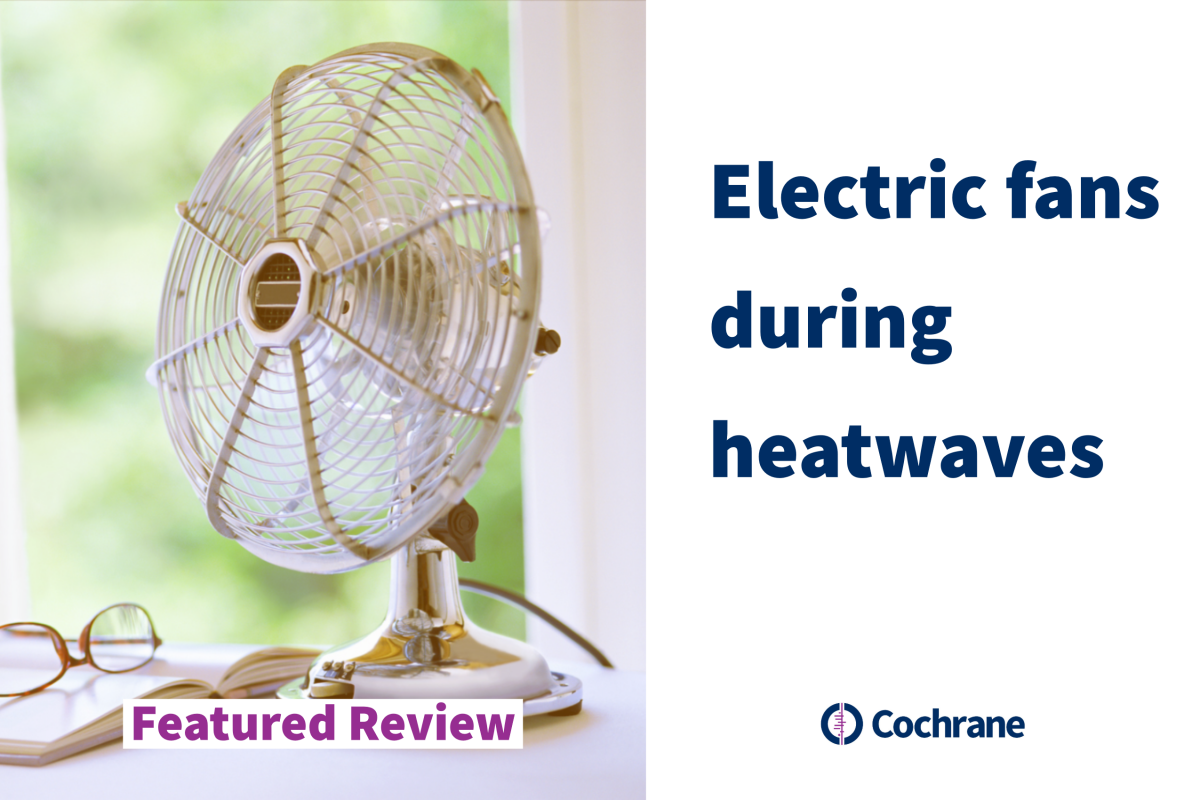
The Cochrane Review 'Electric fans for reducing adverse health impacts in heatwaves' is being turned to for advice on dealing with recent heatwaves. We talked to lead author, Mike Clarke, to learn if the evidence says that the use of electric fans contribute to or impede heat loss during a heatwave.

Why is this Cochrane Review so important? Isn’t it obvious that electric fans are useful when the weather gets hot?
Although it‘s clear that fans make us feel cooler when the temperature is in the high 20s and 30s °C, and the speed with which they leave the shop shelves as temperatures rise shows this; what’s much less clear is what they do to health generally and, at the extreme, whether they increase or reduce the chances of people surviving a heatwave. We did the review to look into this and the studies we identified suggest a need for caution, especially as the temperature rises beyond 35°C.
What did you find?
After searching through thousands of articles in multiple languages, we were disappointed that there were no high quality comparative trials that would allow us to reliably determine the effects of fans on major health outcomes or survival. However, we did find several other studies that had looked at this during heatwaves, such as the one that led to an additional 30,000 deaths in Europe in the summer of 2003. These studies had mixed results, and the important message is that some of them suggested that using an electric fan might increase the chances of dying during the heatwave.
How could that be?
One of the main ways that fans make us feel better is that they cool us by speeding up the evaporation of our sweat. The downside of this is that our bodies are losing water more quickly. If we don’t replace this by drinking more, we will dehydrate, which is dangerous. Another issue is that a fan might actually heat us up. This is because it‘s blowing hot air on to us, especially when the temperatures gets above 35°C, and that’s like what happens when switching an electric oven from its regular setting to the fan setting in order to cook our food faster.
Who might this be most relevant to and what should people do?
If fans are harmful, it’s going to be a particular problem when they are used for people who aren’t able to let us know if they’re feeling particularly unwell or becoming dehydrated, such as the very young or old, and those who have difficulty communicating, such as people with dementia or other types of cognitive impairment. Everyone needs to be aware of the potential harms from using fans, especially those who are looking after these vulnerable groups.
People should heed the advice from Public Health England, which was released with their national heatwave plan for England. They recommend that electric fans be used if the temperature is below 35°C, but not aimed directly at the body and that those using them should stay hydrated with regular drinks.
How did this review come about?
The review was done in the run up to the London Olympics in 2012, when it was important to gather evidence that might be needed if a heatwave struck when thousands of athletes and tens of thousands of extra visitors arrived for the Games. We assembled an international team, with researchers from Canada, Hong Kong, India and the UK looking for and checking the existing research. We were from a variety of organisations, including the Climate Change and Health Office of Health Canada; Queen’s University Belfast in the UK; the Chinese University of Hong Kong-Oxford University Centre in Hong Kong; what is now Public Health England; and Evidence Aid, which is an international organisation dedicated to improving access to evidence relevant to disasters and humanitarian emergencies, such as heatwaves. The Centre for Public Health in Queen’s University Belfast provided methodological support for the team, and working with the Cochrane Gynaecological Cancer Group in Bath (UK), we were able to get the review done in about nine months.
If the review was done in 2012, are the findings still valid?
Yes. We’re not aware of any studies that would change our conclusions that the benefits and harms on major health outcomes of using electric fans during heatwaves are uncertain, and that there is a risk that using fans might increase the number of deaths.
What type of study would provide the information to clear this up?
What I'd really like to see is a large trial in which one group of people go without fans and another group use them during a heatwave. Given the uncertainty about benefits and harms, it would be reasonable to decide these groups using a random process and it might be particularly relevant for, for example, older people living in care homes whose health should be closely monitored during the heatwave. Ideally, a national or international funder of health research should arrange for such a study to be in place, ready to take “off the shelf” and activate the next time a heatwave strikes.

